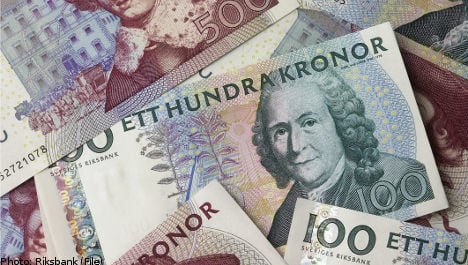For the third year running, Sweden has the highest marginal tax rate among OECD countries included in an annual survey carried out by tax consultancy KPMG, the Dagens Nyheter (DN) newspaper reports.
Number two on the list is Denmark with a marginal tax rate of 55.38 percent, followed by Spain with 52 percent.
According to the KPMG report, the Czech Republic has Europe’s lowest marginal tax rate, a mere 15 percent, while Hungary is a close second lowest with 16 percent.
In the report, a marginal tax rate is defined as the tax high-earners pay on their last unit of income. In Sweden’s case, that means high-earners pay 56.6 percent in tax on their last earned krona.
The KPMG report compares tax rates in 114 countries, including the 33 industrialized countries of the OCED.
The consultancy has found that the global financial crisis has had an impact on tax rates in a number of countries.
“During the last year, more countries have raised their marginal tax rates than have cut them, and the financial crisis is almost always given as an answer,” Helena Robertsson, head of KPMG’s tax business in Sweden, told DN.
However, Sweden may soon lose its grip on the top spot in the ranking if French President Francois Hollande succeeds in implementing a marginal tax rate of 75 percent on those who earn more than 1 million euros.
The study also looks at what happens when social fees such as mandatory pension fees are added into income tax calculations for people earning $100,000. The adjustment moves Sweden down to 20th place with 36.3 percent.
The Local/dl



 Please whitelist us to continue reading.
Please whitelist us to continue reading.
Member comments